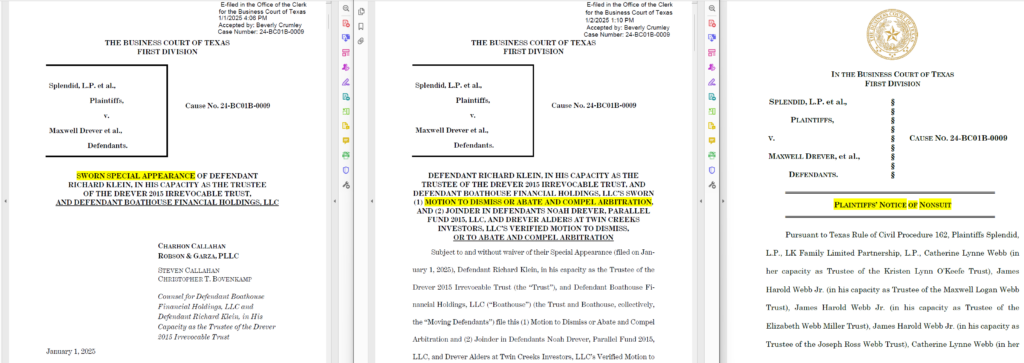Everyone loves a good man-bites-dog story. This is the story of an attorney who took pictures of the Indianapolis skyline and filed dozens of lawsuits accusing defendants of copyright infringement. The story didn’t end well for the attorney.
The jury found that the attorney did not prove he authored the photo, owned its copyright, and registered it with the Copyright Office (it appears as if the jury could’ve found that the attorney took the photo as a work made for hire for his prior law firm). Judgment was thus entered for Defendant Carmen Commercial Real Estate Services. Defendant then moved for attorney’s fees and costs.
The Court hit the attorney with $172,173 in fees and costs (decision available here). The Court found that the attorney’s position on ownership was not unreasonable, but his position on damages was a different matter.
Similar licenses to images went for $5 to $200. The attorney testified at trial that he typically licensed the photograph for $200. In a prior case, after prevailing at trial, he was awarded $200 in statutory damages. The attorney testified at trial that his “actual damages are probably $200.”
The Defendant offered to settle, pre-suit, for $1,000. But the attorney proceeded to trial seeking $150,000 in statutory damages “on scant evidence of willful infringement.”
This the Court did not like:
[The attorney] has filed many lawsuits over this photograph. Other judges have found indicia of improper motive: “[The attorney’s] motivation for filing this action appears to be an attempt to extract quick, small settlements from many defendants instead of using the judicial process to protect his copyright against legitimate infringing actors.” . . . .
Here, the record similarly reflects that [the attorney] used the threat of litigation costs to extract quick settlements. In his initial $5,000 settlement demand, [the attorney] wrote:
If not settled by noon May 9th, all offers will be withdrawn[,] and any settlement offers will be substantially higher, as you are responsible for statutory damages, costs, and the copyright holder’s legal fees.
In response to Defendant’s offer to settle for $1,000, [the attorney] wrote:
The infringer is liable for statutory damages, plus copyright holder’s attorney fees and costs, which is substantially more than $5,000. Suit will be filed May 9th, 20[1]6. If you wish to avoid legal action, deleting the photo without payment is not an option. You still owe $5,000 for past unauthorized use. Should the $5,000 not be paid by noon May 9th, 20[1]6, [the attorney] will be filing a lawsuit against Carmen Commercial Real Estate Services for copyright infringement. Once the lawsuit is filed, fees and costs go up and Carmen Commercial Real Estate Services will not be able to settle the case for $5,000. It will cost substantially more.
Not looking good for our hero. (In general, it’s never a good idea to say, “My offer is $X. If you don’t accept it, it’ll go up.” Because nobody will believe you and that’s generally not the way things work.) Ultimately, the Court awarded the Defendant attorney’s fees and costs totaling $172,173.06.
A few items to reflect upon:
- If you’re an attorney, going into the copyright lawsuit game as a plaintiff probably isn’t a good idea. 172,173 reasons not to do so here.
- If your photo generally sells for $200, it’s probably not a good idea to seek $150,000 in damages at trial. That just may be a good way for the jury to pour you out on liability.
- Always be careful of what you say in your settlement communications. The Court clearly didn’t like the pre-suit demand that, if the claim wasn’t settled, the attorney would have to be paid more post-lawsuit.

